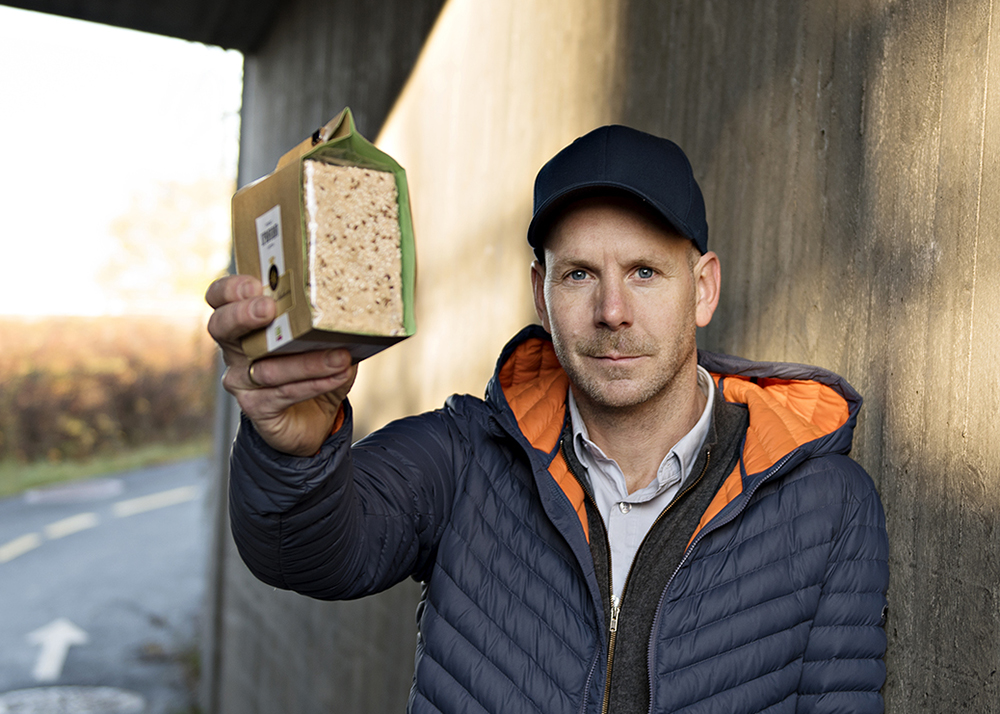Food producers succeed better with innovation through openness and collaboration

Sveinung Grimsby defended his dissertation on 16 June 2021. The theme of the dissertation was “Radical innovations in a conservative industry”.
There are different types of innovation. It could be an improvement or adaptation to an existing product. This is often called incremental innovation, and this is the most common type in the food industry. At the opposite end of the spectrum is radical innovation. Radical innovation creates new product categories or change entire systems.
It is the radical innovations in the food industries that research fellow Sveinung Grimsby has studied in his doctorate.
Open innovation in the Norwegian cereal industry
He has investigated whether open innovation processes are an important factor in the success of radical innovation. The study objects have been the project open innovation in the Norwegian cereal industry and the the EU’s novel food regulations and its impact on new product development processes for the industry.
“I found that there is a connection between success and how open and collaboration-oriented companies are in their innovation processes. Open innovation works best when companies have mutual trust in each other, are about the same size and do not compete for the same customers”, says Sveinung Grimsby.
One of the ideas from the open innovation project was to develop “a delicious crispbread that does not crumble” for industrial production. It may not seem like news now, but ten years ago when the idea was launched, as one of 17 ideas, there was no industrially produced “quality crispbread”. Some craft bakeries sold varieties of this type of crispbread, and many private recipes were shared on social media.
“Several of these ideas, from the open cereal scheme ten years ago, have become their own product categories. “Quality crispbread” is the one with the greatest success. These crispbreads are now sold domestically and abroad, and the value creation on these is higher than for ordinary crispbreads. The value of sales has doubled, while the volume has increased by 25 percent”, says Sveinung Grimsby.
Novel food regulations can slow down the pace of innovation
Collaboration with research environments is central for companies that have so far applied for novel food approval for new products. The iNOBox project has also looked at how completely new processes in the food industry can also lead companies into a “novel food category”, where the end product of a new process must be approved by the EU and EFSA’s food inspectorate.
Food products that were not consumed in the EU before May 1997 are categorized as “novel food”, and approval must be applied for before they can be sold. During the first 20 years of the scheme, only 128 products were approved throughout the EU. On average, it has taken 3.8 years from the start of the application process until the approval has been granted.
This may be one of the reasons for the modest number of applications. Another reason for the low number of applications is believed to be that the applicants have to reveal a lot of information about the product and the development process. This has allowed other companies to intercept and further develop good ideas.
A third reason is that the application process was very rigid. The regulations were therefore changed in 2018.
“The findings from my studies indicate that the previously very rigid novel food regulations were in reality an obstacle to innovation in the food industries. This has improved with the new regulations, but there is still the problem that a lot of information is made available so that it can be more profitable to copy other people’s good ideas than to come up with your own. Patents have thus become more important”, Sveinung Grimsby explains.
Open innovation is an important factor
“Grimsby’s studies show that collaboration with suppliers, customers and research environments plays an important role in the innovation processes”, says senior scientist and supervisor Cathrine Finne Kure.
Grimsby’s studies show that open innovation processes contribute to building mutual trust and better cooperation between the various participants.
“The lesson is that the food producers succeed better with innovation through openness and interaction, combined with various forms of protection”, Sveinung Grimsby concludes.
About the disputation
Sveinung Grimsby defended his dissertation at the University of Oslo on 16 June. The full title of the dissertation: Radical innovation in a conservative industry. Selected cases of new product development in the Norwegian food industry
Supervisors: Professor Magnus Gulbrandsen, Centre for Technology Innovation and Culture, University of Oslo and senior scientist Cathrine Finne Kure at Nofima.
More information: https://www.sv.uio.no/tik/forskning/aktuelt/arrangementer/disputaser/2021/disputation-sveinung-grimsby.html
The doctoral degree was funded by the Foundation for Research Levy on Agricultural Products (FFL) via Nofima’s strategic programme.

